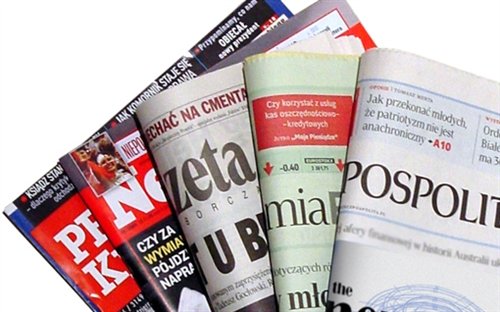PRESS REVIEW – Poles prefer experts to politicians…
PR dla Zagranicy
Peter Gentle
12.10.2012 13:07
Research carried out by TNS pollsters shows that most Poles are fed up with the Civic Platform (PO) - Polish Peasant Party (PSL) coalition and its cabinet head, reports GAZETAC WYBORCZA.

A manifestation of these sentiments is a longing for a government of experts instead of one tailored according to a political key. The moment has been effectively used by the opposition Law and Justice (PiS) which moved ahead of the Civic Platform in popularity ratings. Asked whether Donald Tusk should remain as Prime Minister, 26 percent of respondents were in favor while 44 percent gave a definite NO to the idea. The question: Should a non-parliamentary based government be formed? received 49 percent support with 25 percent of the surveyed being against change. Also, 47 percent of the respondents stated openly that they did not want a continuation of the PO-PSL coalition. At the same time only 28 percent of Poles believe in a return of Law and Justice to the helm of government and 52 percent considering this impossible.
DZIENNIK GAZETA PRAWNA announces that the health service in Poland is doing very well. The private sector, it quickly adds. Poles have become totally disenchanted with the public health service system and National Health Fund, which runs its affairs. The more desperate persons reach deep into their own wallets and seek private medical advice and care. And contrary to the public sector, private clinics and hospitals have responded actively to the 30 percent increase of patients discouraged with the NHS. Experts draw attention to the imperative need of reform in the public health insurance system, however this would require introducing partial payment for medical visits and diagnostics, something bound to raise strong resistance of most patients.
POLSKA THE TIMES devotes attention to Stephen Mull, the new US ambassador to Poland. The 54-year-old American diplomat is no newcomer to this country, having been accredited for the first time in Poland back in 1984, still in times of communist rule here. Mull was forced to leave by the regime’s intelligence services which discovered his connections with the erstwhile democratic opposition. He returned with a four year assignment in 1993, after Poland had already undergone fundamental political and economic transformation. Stephen Mull has already won the hearts of many Poles, gaining a large army of followers on Twitter, where he nostalgically reminisced about his previous stays in Poland and even asked about local brands of beer. Pointers are he might become more popular than Victor Ashe or Lee Feinstein, his predecessors at the ambassadorial post in Warsaw.
Press review by Slawek Szefs